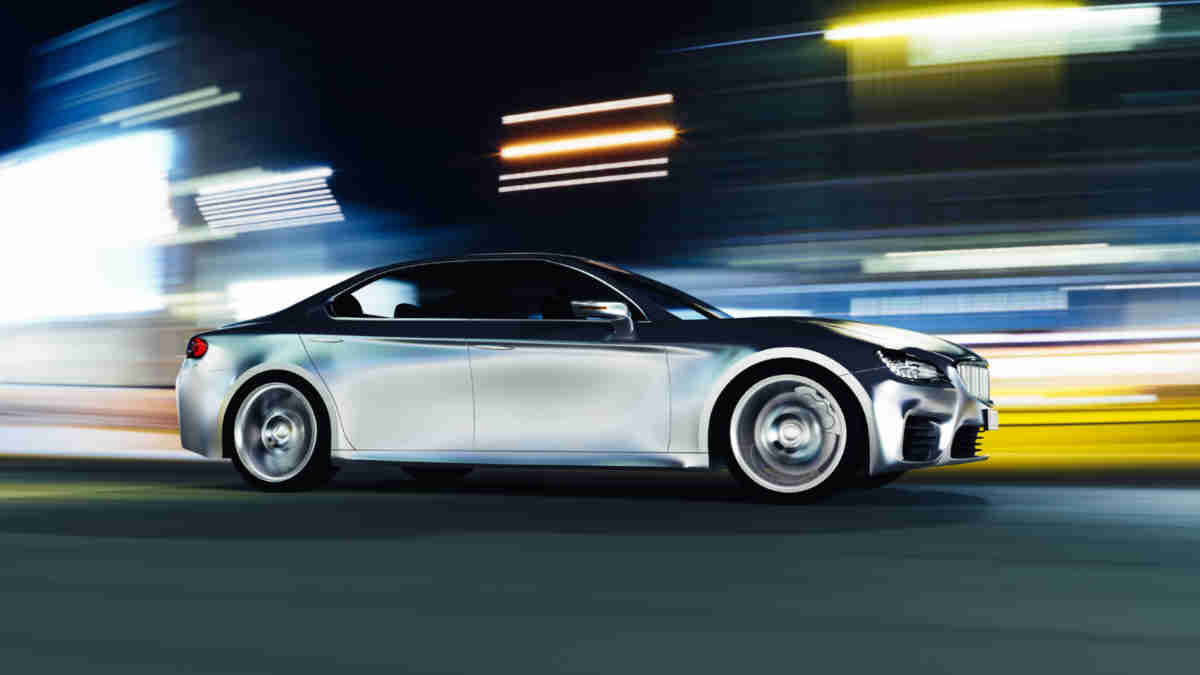ASX-listed Carly takes its car subscription platform up another gear after launching an EV trial program

Carly is Australia's first flexible car subscription service. Picture Getty
- Carly is Australia’s first flexible car subscription service
- The company has just launched a new EV trial product
- Why CL8 could be in the box seat to capture the huge EV market
People are holding back on buying electric vehicles (EVs) due to concerns such as range anxiety, battery life, and the availability of charging stations.
The higher sticker price is also an obstacle, but fundamentally, it’s the fear of change and the unknown that’s stopping people from swapping out their internal combustion engine cars.
Things are gradually changing however. Latest data shows there are now around 180,000 EVs on Australian roads, with almost 100,000 purchased in 2023 alone. But this represents only around 8% of all new car purchases last year.
With that long runway still ahead, companies like ASX-listed Carly Holdings (ASX:CL8) are in the box seat to capture a slice of this potentially huge market.
Carly is Australia’s first flexible car subscription service, which has just launched a new product, the EV trial, to answer the very question on many Australians’ minds: ‘Should I buy an electric vehicle?’.
The product was developed under the premise: “How can a car buyer really know if an EV is suitable if they can only take it for a short 10 minute test drive?”
“A lot of people are confused about the transition to electric vehicles,” Carly’s CEO, Chris Noone, explained to Stockhead.
“They know that it’s being encouraged by the government, they know it’s probably better for the environment. However, they have a lot of questions about the transition.
“It’s not just buying another car; it’s actually investing in a new technology. It’s a new way of operating a vehicle. And there’s a whole new vocabulary that people need to learn,” Noone said.
Carly believes that the only way to answer the myriad of questions is to actually give people an opportunity to try an EV before they buy.
The company’s EV subscription program essentially de-risks the purchase by letting people pay for a short term subscription before deciding what sort of EV, if at all, might be suitable for them.
Popular EV models that can be booked online on Carly’s platform include the Hyundai Kona, Ioniq 5 and Ioniq 6, Genesis GV60, MG MG4, BYD Seal & Atto 3 and Cupra Born – with more models and brands arriving each month.
“A test drive for an electric vehicle is 10 to 20 minutes – that’s way too short. You don’t have an understanding of charging the vehicle. You don’t have an understanding of the range capability of the vehicle.”
Car subscription vs rental
Backed by SG Fleet and Turners Automotive (ASX:TRA), Carly first launched its car subscription business in 2019 after pivoting from a peer-to-peer rental model.
The company’s fleet of vehicles has since grown to over 450 today, which include a combination of electric and internal combustion engine cars.
The minimum subscription period is for 30 days, but the company says a typical customer subscribes a car for 5.2 months.
Noone explained that there’s a difference between a car subscription and rental service. Car rentals are usually between 1 to 14 days, and with carshare, you typically have one hour to one day, and beyond one day, it becomes a very expensive proposition.
“Rental car prices also fluctuate throughout the year, especially in high demand periods such as summer summer holidays or school holidays,” said Noone.
“The other thing with rental is that you can’t choose the exact car. With a car subscription, you actually get to choose the exact car you want to drive.
“People can select the colour, the model, the brand of vehicle, and the vehicle they book online will be the exact vehicle that they pick up,” he added.
Carly also allows the customer to switch vehicles. So if people’s needs change and they need a larger car, they’re able to switch that vehicle for the period of time that makes sense to them, and then change back to another vehicle later on.
“All of our prices are presented in weekly rates. The most economical vehicle that we have is $210 per week, and that includes insurance and registration.”
“Our flexible car subscriptions essentially offer a flexible alternative to people who would normally buy or lease a vehicle, but for whatever reason, they can’t commit to that longer term time period,” said Noone.
Impressive numbers
Carly’s numbers are pretty impressive. In the half year to December, revenue grew 84% to $1.62 million. Gross profit during the half increased by 38% to $444k.
In January, the company gained further momentum as it reported record results for cash receipts and subscriber growth.
Fleet utilisation, an important metric for the business, was up 5% in January to 86%.
“The high 80% rate is our target utilisation rate. That’s when we have the majority of our vehicles on the road, each of them earning money.
“It means that our stock costs are reduced for any idle vehicles. So utilisation rate is a key metric that everyone in the organisation knows on a daily basis,” said Noone.
The company has also been growing the fleet of vehicles that it owns.
“When we own a vehicle, we take a higher margin on these vehicles, compared to the asset light fleet (vehicles leased from a third party),” said Noone.
“We want to grow our fleet as quickly as possible, and we want to maintain this high utilisation rate.”
Noone says the next focus will be on grabbing a share of the corporate market.
“The corporate market has different dynamics to the consumer market,” Noone explained. “And there are some advantages and opportunities to scale very quickly within that market.”
“But our focus is on increasing our gross profit figure at an accelerating rate.”
Solid backing
Noone says that Carly has a proven business model that’s been honed over a number of years.
“We haven’t entered this market with a blue sky idea and testing the proposition. We’ve come into this market with some very good experience and strong strategic partnerships.
“We have SG fleet, the largest fleet management and leasing company in Australia as our second largest shareholder, and they refer customers to Carly.
“Turner’s Automotive is the largest seller of cars in New Zealand, and they’re our fourth largest shareholder.
“So we have the backing of those businesses, and we also have very strong strategic relationships who are sharing information in the market,” said Noone.
Carly share price today:
Related Topics
UNLOCK INSIGHTS
Discover the untold stories of emerging ASX stocks.
Daily news and expert analysis, it's free to subscribe.
By proceeding, you confirm you understand that we handle personal information in accordance with our Privacy Policy.








